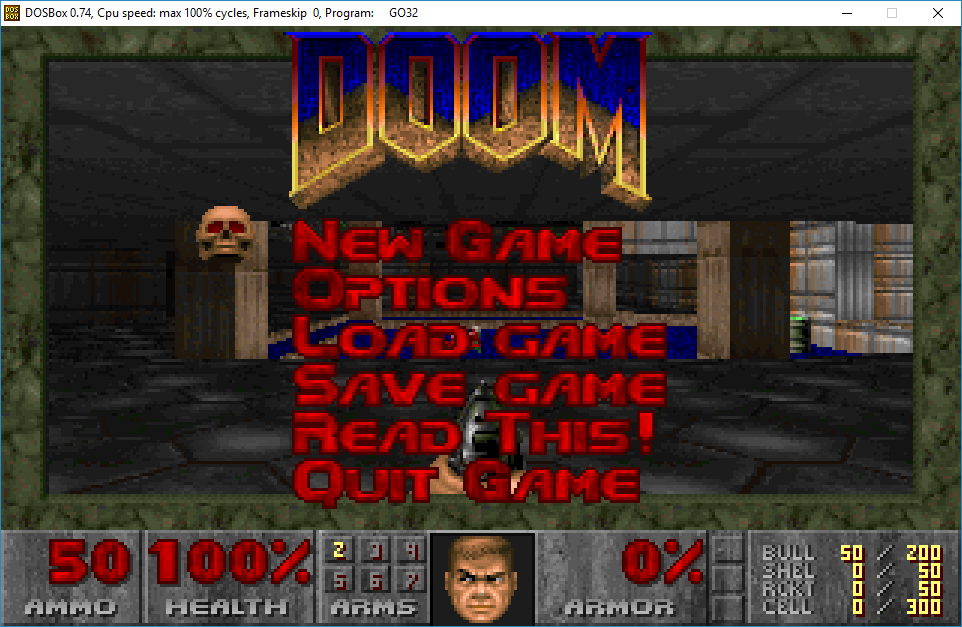phew.

DooM via DJGPP v1 GO32
Around the time of the x68000 port of DooM, I was cutting down the DooM source for a null/portable version.  I never could get it to actually run either using EMX or DJGPP 1.03, as I couldn’t get it to link to save my life with a constant never ending battle of unresolved symbols. After a while I just used what I had towards the x68000 version and concentrated on getting it up and running, and just shelved the null/portable effort.
Later on I wanted to get it running again as part of messing with another cross compiler, as DooM isn’t a trivial application to port and verify correct operation. And in the process of trying to get the null version to build and run on Windows using TDM GCC, I wanted to make sure it at least kept compiling with GCC v1.x.
Once more again I was able to compile individual files but unable to link.  But this time, I just looked at the diffs for binutils, I thought it should be somewhat easy to get hosted on Windows.  Although versions may point to binutils 1.0, I had to use binutils-1.9.tar.gz even though the diffs are against Mar 24 1991, and the source for 1.9 is dated April 17 1991.
My first effort gave me a linker that would happily link, but go32 would either refuse to run the executable, or just crash. Â I was going to give up again, but I found mention in another file that DJGPP actually uses the linker from G++, the C++ compiler which was a separate thing in the late ’80s and early’90’s. Â This time it worked, and I could link a trivial hello world style application!
Now that I finally had a cross linker actually working, I didn’t want to compile under emulation, so looking at the other diffs, they didn’t look too extensive. I went ahead ,and took DJGPP v1.06 and patched up the compiler & assembler to get a full cross toolchain. Â And in no time, I had a null version of DooM running on MS-DOS well at least tested on DOSBox.
This was fun, and all but I didn’t see any easy way to do fun things like hook interrupts so I could get the keyboard & clock like any good MS-DOS program.  DPMI greatly eased this kind of stuff, so looking at the DJGPP history, DJGPP v1 version 1.10 actually adds preliminary DPMI support!  And in the next version, DPMI was much more better supported, however the binary format had changed from a.out to COFF as part of the move to v1.11. I was able to take the memory, and DPMI portions from the final v1.12 libc, and manually build and run them against the v1.06 library / dev tools.
And much to my surprise, it actually worked! Â At least having the wrong format didn’t have any effect on how GO32 worked for me.
So feeling lazy, I snagged some of the support code from Maraakate’s revamp of DooM, just to make sure of the timer code, and the keyboard code, and again verified that I can build with the keyboard & timer ISRÂ and I’m able to play the v1.9 shareware & commercial levels fine. Â I haven’t done a thing to clean up or update the DooM source itself against all the dozens of bugs and issues with Ultimate DooM, or other games like Chex Quest etc.
I’m sure 99% of people wouldn’t care but you can download it here:
Win32_DJGPPv1_DooM.7z

Although I’m using DPMI to drive realtime events, if I looked further at the GO32 v1.06 environments I could either figure out how it operates it’s timer, or modify the extender directly to drive the PIC timer and keyboard as I need. Â But overlooking that, the vintage 1991 software is more than capable of running DooM.









